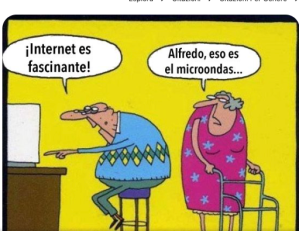Whenever news arrives from Brussels about a new regulation of the Internet (as in the current political agreement on the Digital Service Act, also called DSA), critical choruses arise from those who would like Europe solely dedicated to supporting trade, but never to creating rules. These are criticisms that aim to win easy applause and that deliberately ignore the reality in which we live in Europe.
To answer in a nutshell: it is true that the European Union, and especially its Member States, should do more to grow their tecnological companies, especially in a landscape largely dominated by American and Chinese players; but this does not mean that the European Union should refrain from regulating the sector, given that it has grown to such an extent that it permeates almost every corner of the economic and social fabric. This is, by the way, the sense of the DSA: adapting the current Internet framework, which was conceived ion the years 2000, to the new technological and market scenarios made of tons of Internet companies, some them of global scale.
But above all, and here we come to the point: the European Union cannot avoid regulating the Internet because, unlike the USA and China (which in any case have their own rules), it oversees a market in which 27 systems coexist different legislation. EU must therefore regulate and harmonize in a common way all the activities and businesses that take place within it, so as to avoid that differences in legislation between country and country do not constitute an obstacle. This applies to the circulation of goods (from trucks to Lego bricks, to cars and food), workers, businesses and services. All the success of the European Common Market is based on this harmonization activity that has opened enormous potential to businesses and citizens, although very often Europeans forget about it (but our British colleagues, who try to trade with the EU after Brexit , they have now got it right). The same principle applies to the Internet: without harmonization we would find ourselves in a Far-West where a certain service (a simple website or software) would be legal in one country but illegal in the other, with legal uncertainties and disputes.
The US and China do not have this harmonization problem because they each have a single, large national market. However, it is not true that they do not regulate the Internet, they can simply adapt existing rules or create new ones without having to agree on a community of independent states.
Americans are big critics of the Digital Service Act, as well of the Digital Market Act (politically approved in March 2022), because they see it as a direct threat to their big Internet companies (Google, Facebook, Amazon, etc.), but they fail to remember that they are the big beneficiaries of the legislative harmonization efforts made by the European Union until now. The establishment of the Single European Market was encouraged by American (and British) multinationals because it allowed them to access a large and single continental market, without the related products and services stopping at the Brenner Pass or on the Channel. The same European internet legislation of 2000 (Directive 2000/31), which the DSA would like to update, worked very well and allowed American operators to become dominant in Europe and earn amazingly, also thanks to a favorable tax treatment (but that’s another story). Nothing strange, therefore, that now the European Union intends to make this legislation more suited to the Internet sector of 2020’, which has changed a lot compared to that of 2000: at that time there were no dominant operators and the possibility of compromising the rights of users and of other enterprises were just accidental, but now we know that everything has changed.
Therefore, the legislative activity of the European Union is by no means hyper-regulation, it is simply a natural development of an activity dating back to the establishment of the single market and to 2000 as regards the Internet. It is more complex only because the world has become like that: the directive of 2000 did not even imagine the existence of social networks and the massive digitalization of mostly all economic and social activity. Once regulation goes, more and more aspect require further details and consideration. To sum up: the DSA is not the achievement of a more complex regulation of the Internet, it is just the beginning.
Categories: Online platforms
